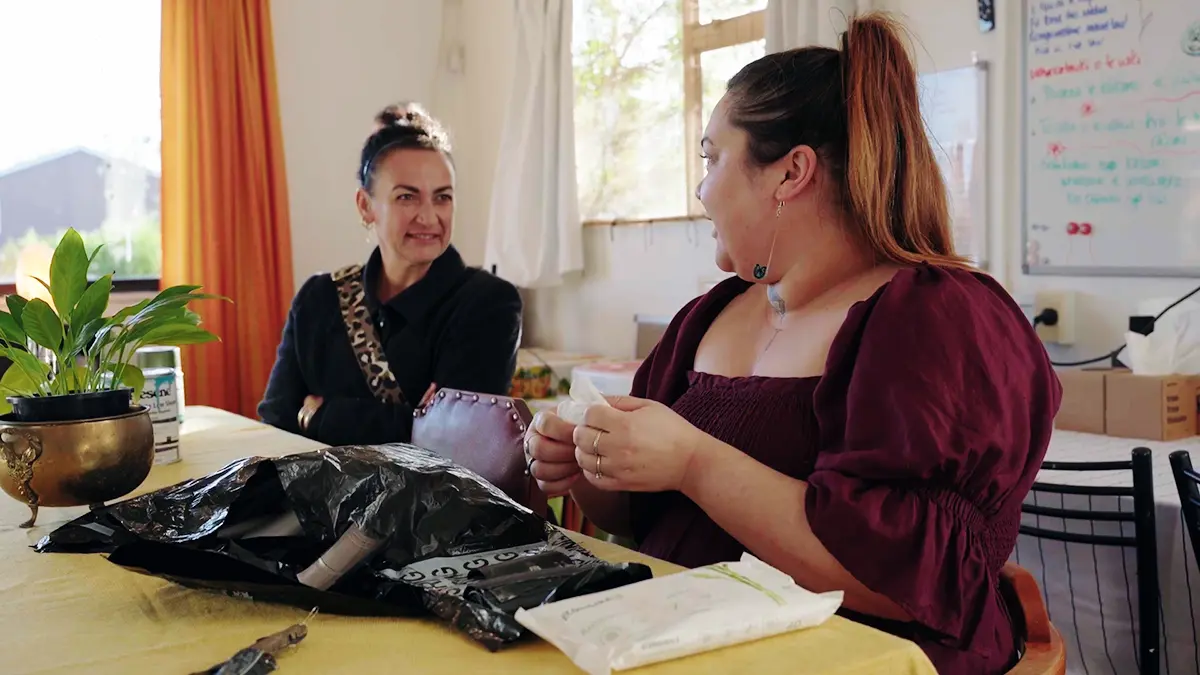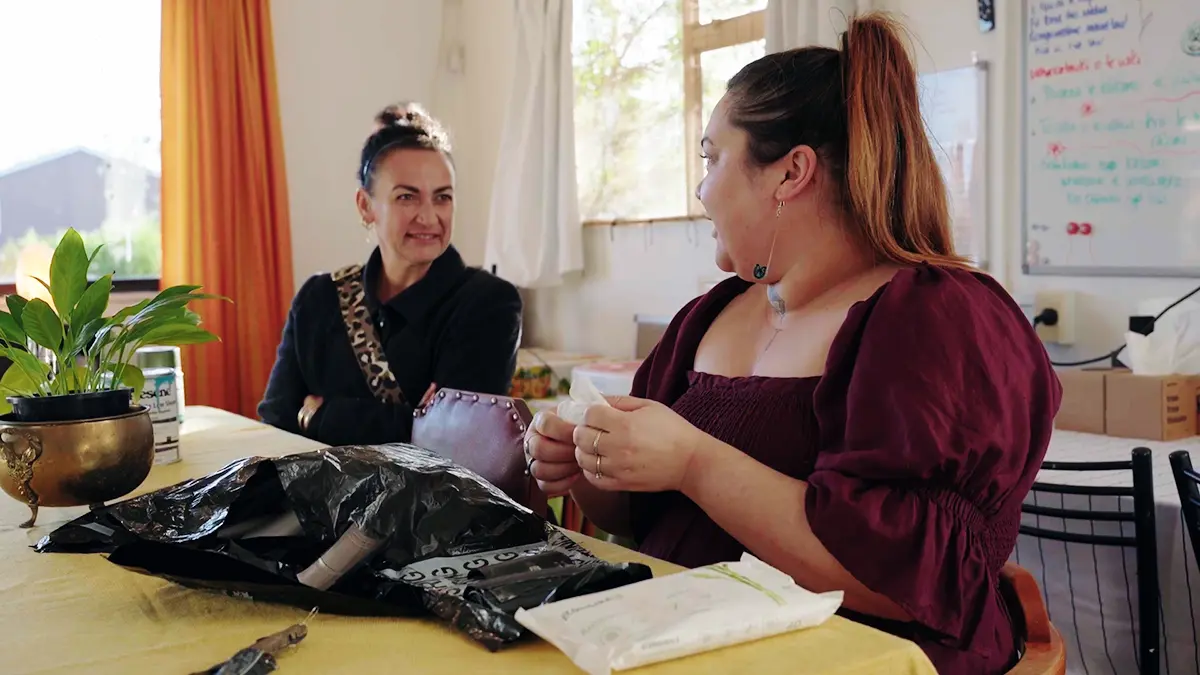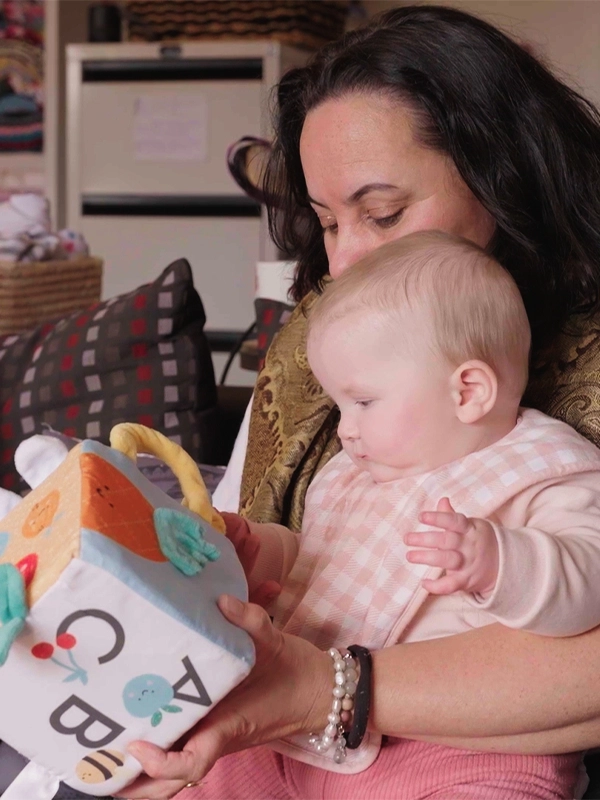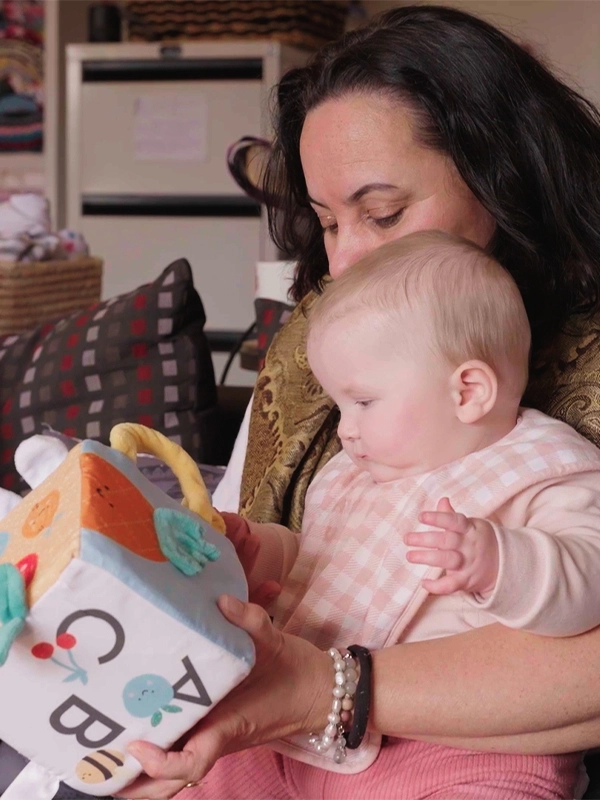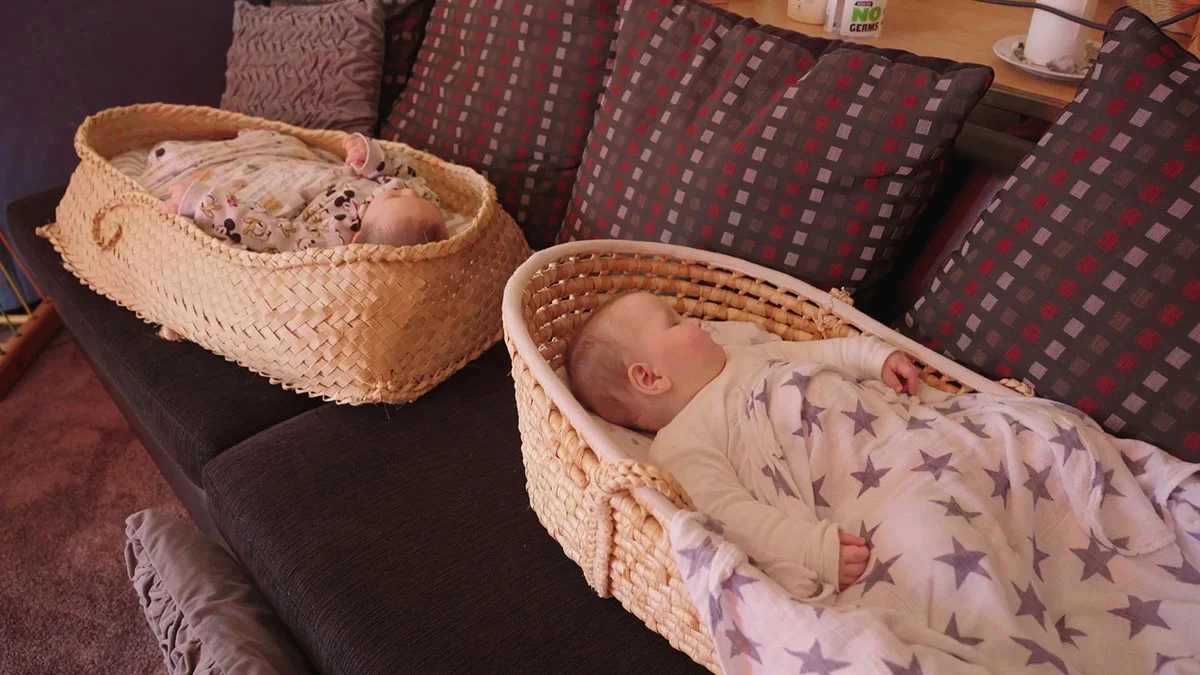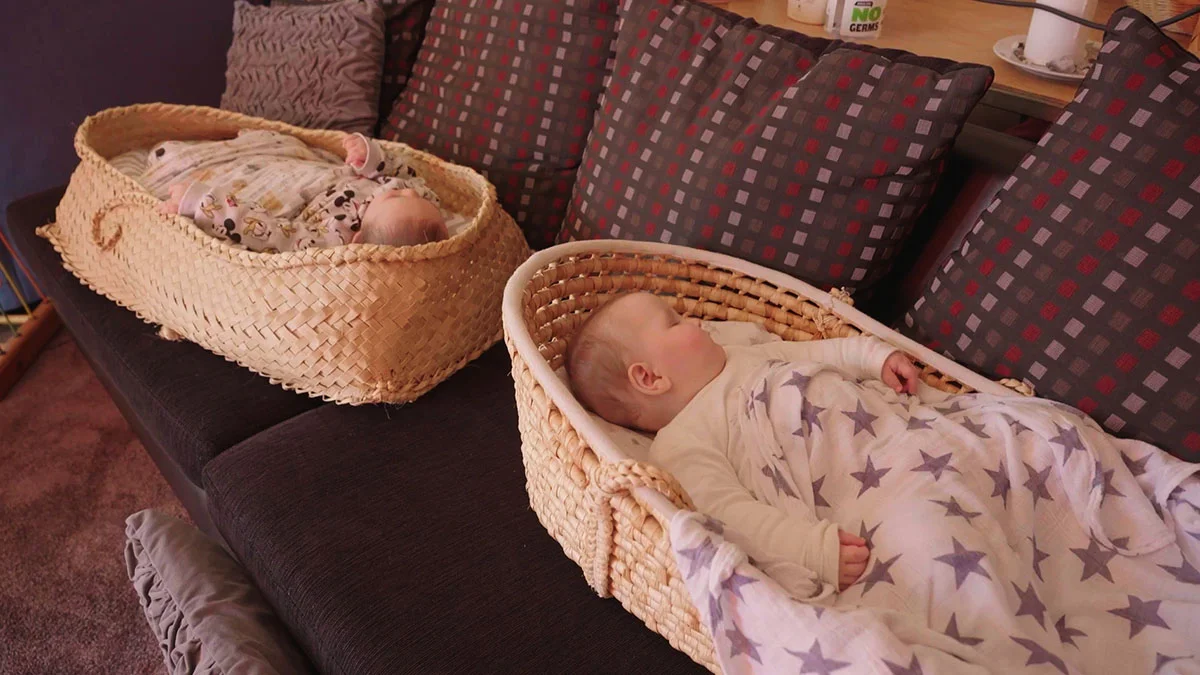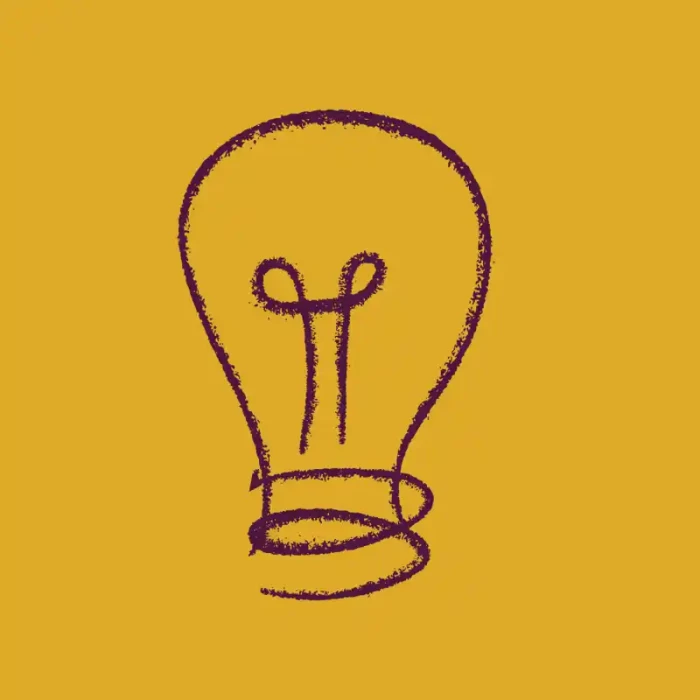
Mamia: A marae-based ‘home away from home’

10 April 2024
Dr Aria Graham (Ngāti Kahungunu, Ngāti Porou, Tufuiopa Samoa) is the founder of Mamia in Hawke’s Bay. The kaupapa offers a safe and warm kāinga for māmā based on her PhD research, nursing practice, and what she knows about whānau, tikanga and kawa.
Tucked away on the outskirts of Heretaunga (Hastings), Waiputu Marae is a place where the community live and rest. The perfect space for Mamia – a ‘home away from home’ for māmā and pēpi, where wairua and aroha are abundant.
Mamia is the only marae-based kaupapa Māori child and maternal wellbeing model in Aotearoa. The kaupapa provides a safe, tikanga Māori space for māmā and pēpi to drop-in. Since the kāinga opened its doors, more than 200 māmā in the region have been supported.
“It’s about believing in others and nurturing them,” Dr Aria Graham says.
“That’s what Mamia is about. It’s about looking after our little babies, our pēpi, and our tamariki who are our future.”
From in-depth research to everyday practice
Dr Graham’s PhD research explored the experiences of wellbeing of young Māori māmā following the birth of their first tamaiti .
“From this I formulated a conceptual framework based on origins of creation and Māori models of wellbeing to help make sense of and assemble the findings,” Dr Graham says.
Her research identified the significant power of having trusted relationships with other māmā and wāhine .
“Mothers and women bring stability, guidance and empowerment for young Māori women that can positively transform adverse situations and promote positive trajectories,” she says in her thesis.
Mamia draws on this research and brings it to life.
Dr Aria Graham and Calais Puku
The impact of a hot kai and kōrero
In the Mamia kāinga, māmā can meet other young māmā and can enjoy a hot kai or rest while one of the ama (volunteers) takes their baby for rest or play.
Kaiwhakahaere Papamahi, Calais Puku, says Mamia is a village of wāhine toa who embrace connection.
“You have a whānau within a whānau, which is beautiful, and you have a community here where you feel safe to be.”
Learning facilitator Moana Walford says that while the team is there with support when needed, it’s māmā who lead the way.
“Everything is māmā-led. We don’t come into their space and just assume. We are there, we unfold, and we are just there for them to step into.”
“There’s tuakana teina that we see happening where a new mum may come in and be very afraid, but then another older mum who’s been here a while will come and support her. It’s like we’re building capacity within the māmā.”
A local māmā says Mamia provides wraparound care that mums need, which they get.
It’s like you’re coming home to Nan’s house. They welcome you with open arms as soon as you walk into the door.
Spreading the kaupapa across Aotearoa
Dr Aria Graham believes that other marae across Aotearoa could create a kāinga like Mamia.
“We can make a real difference at the end of the day. When we see whānau having a positive experience for their wellbeing through Mamia, that just makes it all worthwhile.”
Former chair of Ngāti Kahungunu, Ngahiwi Tomoana, says Mamia is a model other marae shouldn’t be afraid of adopting.
“While everything else may be in turmoil, Mamia gives a quiet place to reflect, to dream, and to nurture,” Ngahiwi says.
